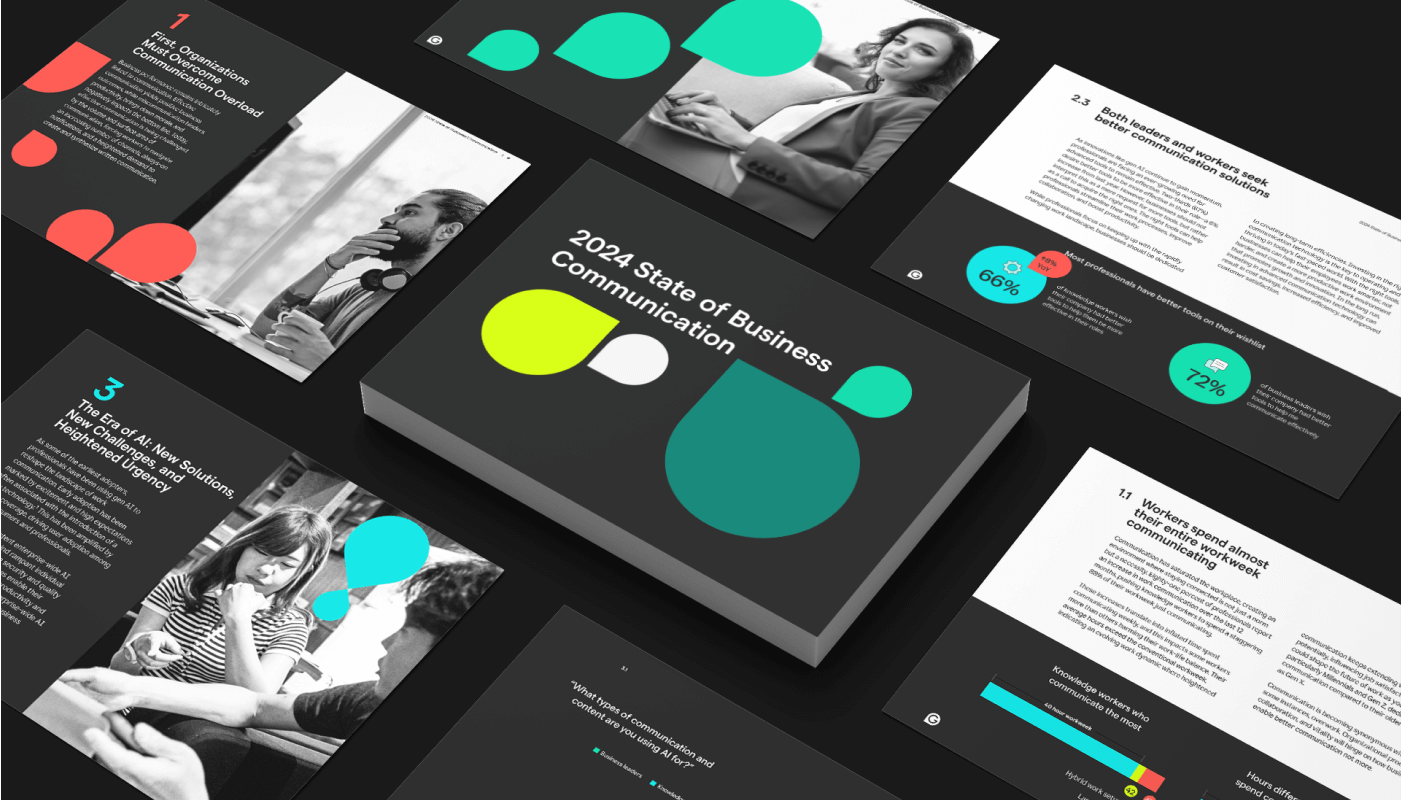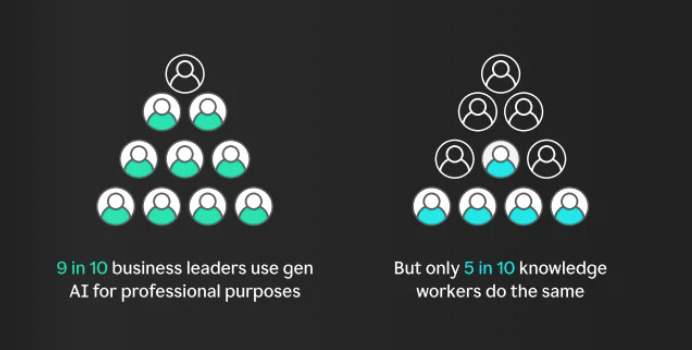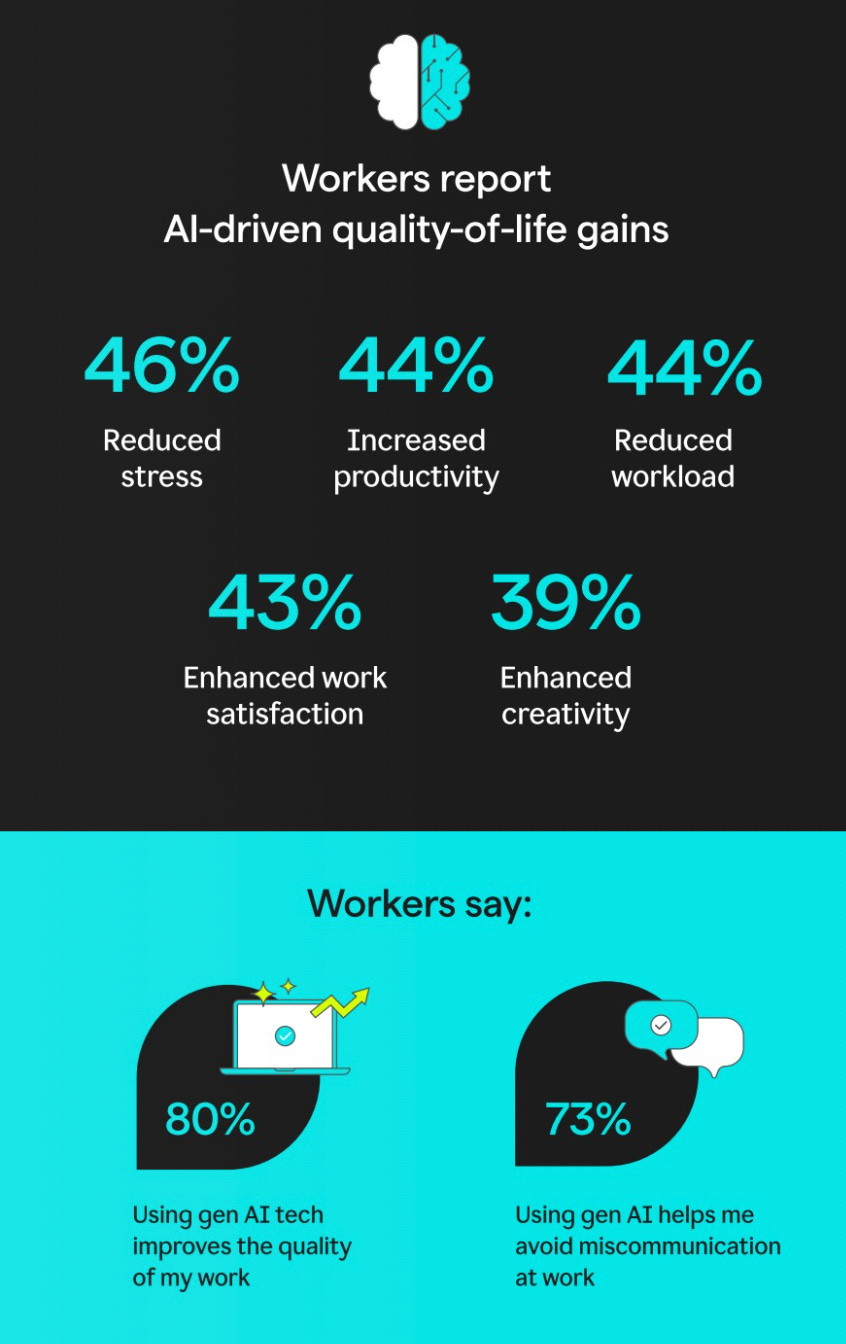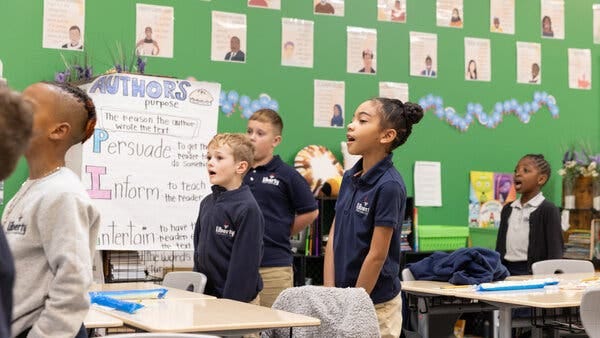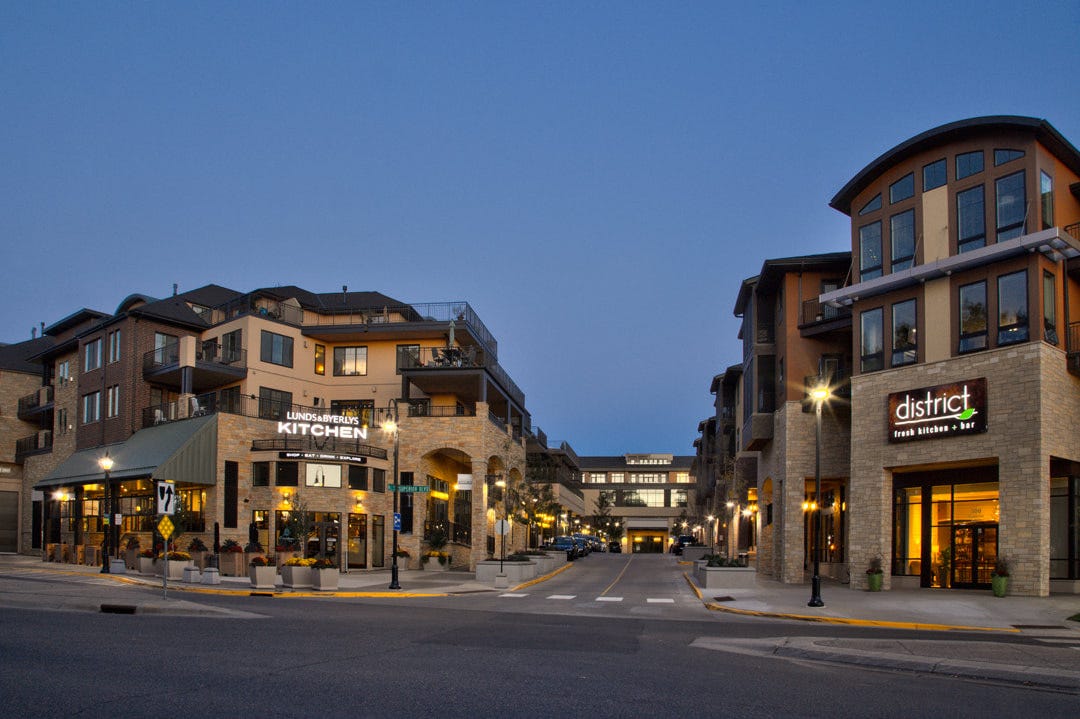Welcome to Next Big Think, where we dissect the shifts remaking our world. Today, we're zeroing in on two pivotal trends: the relentless integration of AI into our professional environments and the transformation of malls into vibrant community hubs. These developments reflect a significant evolution in consumer realities and needs, marking a new era of engagement and adaptation.
💡Insight
1. Your Boss Is Using AI, So Should You
What is it?
As artificial intelligence (AI) increasingly becomes a cornerstone of our professional landscape, the discourse around it has matured significantly. We're not just talking about what AI is; we're delving into how it's being integrated, the disparities in its adoption, and its profound impact on our work.
Recent developments, such as Klarna's announcement of AI performing tasks equivalent to 700 full-time agents and AirCanada's legal tangle over a rogue AI bot's decision, underscore the critical need to balance technological progress with human consequences. These instances highlight the importance of not just adopting AI because it's there but engaging with it thoughtfully.
Ultimately, if your CEO is on AI—so should you. Engaging with AI allows us all to critically assess its drawbacks and opportunties, a vital process for fostering a broader dialogue on AI's place in our work, society and its influence on our future.
What does the data say?
In this years' Grammarly State of Business Communication report, we uncovered the disparity between business leaders and knowledge workers AI adoption rates. For example, 89% of business leaders are harnessing the power of generative AI, in stark contrast to just 53% of knowledge workers. While 82% of leaders are planning investments in AI, those investments will go to waste if not paired with a company-wide AI strategy focusing on literacy, education, and training
.
Unsurprisingly, younger generations are more reliant on AI: 61% of Gen Z-ers assert they cannot imagine doing work tasks now without Gen AI technology, compared to 56% of Millennials, 53% of Gen X-ers, and 41% of Baby Boomers.
As organizations implement Gen AI, we see one of the most significant gains for companies: Knowledge workers estimate saving an average of 7.75 hours of work per week, translating to 19% of their workweek.
At this year's Davos conference, in collaboration with The Female Quotient, we uncovered insightful data on AI's impact in the professional sphere (Women + The State of AI), especially among working mothers. A significant 78% reported utilizing AI at work at least once a month, with 77% acknowledging that AI tools have freed up their time and allowed for more work-life balance. This sentiment is not isolated to working mothers; the broader workforce, including both men and women, recognizes AI's competitive edge, with 69% of men and 61% of women believing that employees who integrate AI into their workflow are poised for greater success.
However, the response to AI's expansion is nuanced, revealing both optimism and reservations. Security concerns, ethical dilemmas, and skepticism about AI as a societal equalizer reflect the complex sentiments surrounding its growth.
65% of business leaders are concerned about AI security (Grammarly/Harris)
More than half of women (55%) are skeptical about AI's potential to act as a societal equalizer, particularly in reducing inequities (TFQ/Harris)
63% of women doubt AI's ability to adhere to ethical standards in the near future, a concern slightly less prevalent among men at 53% (TFQ/Harris)
Key takeaway
The unfolding AI narrative underscores an urgent need for action. Beyond grappling with the infancy and complexities showcased by Google's Gemini, there's a pressing call for widespread AI literacy. We must not only dive into AI to understand its potential and pitfalls, but also champion the education of all workers in this domain. This proactive engagement is crucial for steering AI's evolution responsibly, ensuring its integration serves the greater good. Now is the moment to amplify our involvement, advocate for comprehensive AI literacy, and actively shape the conversation on AI's role in society, aligning it with ethical standards and human values for our collective future.
💡 Insight
2. Malls Reimagined as Community Catalysts
What is it?
Mall rats get a makeover. The transformation of malls from mere shopping centers to multifunctional community hubs is a testament to a societal shift that values connection, education, and engagement far beyond simple consumerism. As we face the stark reality of potentially having only 150 malls nationwide in a decade, as noted by experts like Nick Egelanian and Thomas Dobrowski, the opportunity to creatively repurpose these spaces is immense
“We’ve definitely seen all kinds of alternative uses of malls — to redevelop, repurpose and reimagine them,” said Thomas Dobrowski, vice chairman of the capital markets group at Newmark, a real estate services company.
Examples:
Education Hubs
NYTimes covers how struggling malls reinvent themselves by hosting charter schools in “When Science Class Is in a Former Macy’s.” Highlight how the spaces offer a win-win for landlords seeking new tenants and communities craving more educational opportunities. This innovative shift turns empty retail spaces into bustling hubs of learning, directly embedding education within community centers.
Retirement Communities
As malls seek new purposes, some are transforming into retirement communities, offering seniors not just housing but easy access to healthcare, leisure, and social activities. This shift not only caters to the demand for senior housing but also fosters vibrant, supportive environments for the elderly.
Danielle Arigoni, AARP's director of Livable Communities, highlights a demographic shift "In 2034, there will be more people over 65 than under 18 for the first time ever," said Danielle Arigoni, AARP director of Livable Communities. "Localities have not adequately stockpiled to meet that need. More than half of households have one or two people, but over 85% of housing stock is two or more bedrooms. So there’s already a real mismatch.
A prime example of this innovative repurposing is Folkestone, located in the Promenade development of Wayzata, Minnesota, which stands on the former site of Bay Center Mall. Offering senior apartments with a range of pricing options and a waitlist extending over five years, Folkestone underscores the pressing need for such communities, blending modern living solutions with the convenience and community spirit once found in shopping malls.
Virtual Entertainment Venues
Malls are innovating within the digital realm by integrating AR travel experiences and e-sports arenas, catering to a tech-savvy, younger demographic. These venues merge cutting-edge technology with social engagement, creating immersive environments where virtual worlds come alive. A standout example is the visionary project in Riyadh, Saudi Arabia, known as the New Murabbi. This futuristic city is set to feature a monumental cube skyscraper, described as a "gateway to another dimension," offering visitors and residents an unparalleled journey through holograms and VR technology. Michelle Collins proposes an intriguing concept: transforming the concept of travel and staycations by utilizing the spaces of vacant shopping malls. Imagine a local mall becoming a Disneyland-esque destination, where immersive, travel-themed experiences invite you to explore the world without leaving your community.
Key takeaway
As communities and localities face the challenge of reimagining these once-bustling centers, the conversation around space, its purpose, and its impact on societal well-being has never been more critical. In this dialogue, it becomes clear that the future of malls lies not in their past as retail havens but in their potential as spaces that bring people together, offering innovative solutions to modern challenges and reinvigorating the sense of community that has been diminished in recent times.
3 Links
‘I love to twirl the cord’: the young people pushing for a landline renaissance’ (Guardian)
Gen Alpha are ready to spend – and they want to be treated like adults(BBC)
Unlearning loneliness: How TikTok is rewriting the rules of connection (not about influencers about IRL communities) (Mashable)
Curiosity is contagious; if you like this newsletter, please share it!!
Penned by Libby Rodney and Abbey Lunney, founders of the Thought Leadership Group at The Harris Poll. To learn more about the Thought Leadership Practice, just contact one of us or find out more here.





